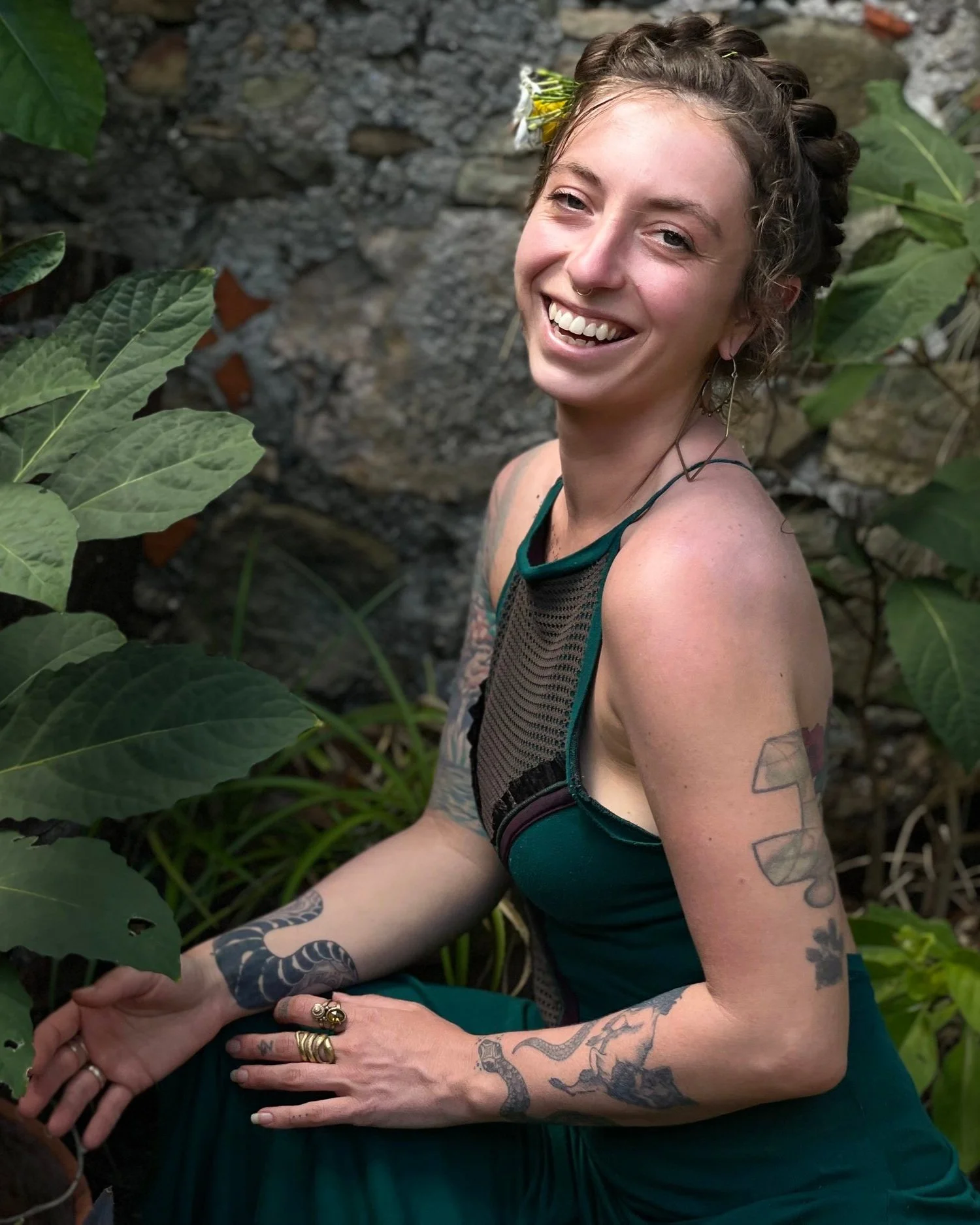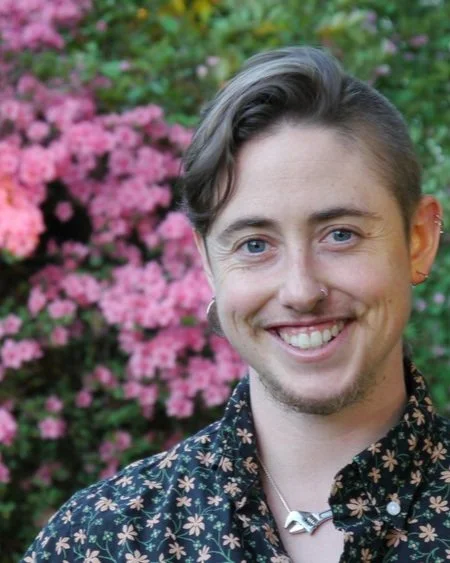Black Thistle Street Aid is a collective of health care workers, herbalists, outreach workers and social justice advocates who intersect with the intention of supporting the community at large by supporting our unhoused community.
Healthcare is a Human Right
-
Black Thistle Street Aid is a collective of health care workers, herbalists, outreach workers and social justice advocates who intersect with the intention of supporting the community at large by supporting our unhoused community. We provided services in Eugene and Springfield, Oregon on the land of the Kalapuya, who today are represented by the Confederated Tribes of the Grand Ronde and the Confederated Tribes of the Siletz Indians, whose relationship with this land continues to this day.
Black Thistle Street Aid seeks to bridge the gap between our community's most vulnerable populations and integrative medical care by meeting people where they are at literally and figuratively. We believe safe, respectful, trauma informed, and culturally competent healthcare is a human right, and no one should be excluded from accessing care. We seek not only to provide access to care, but to heal traumas directly related to medical practices in marginalized communities.
We are committed to practicing integrative healthcare from an anti-racist, anti-misogynist, LGBTQAI+ inclusive, abolitionist, harm reductionist, empowerment and consent-based platform. We lend our voices to the many causes of social and environmental justice that intersect with the health of our patients in an effort to evoke change in our wider communities as a whole. We provide reliable care via street outreach and medical clinics. Through consistent contact, we can build trust and refer people to appropriate social agencies. Our inter-agency collaborations are crucial to the work we do.
In engaging in our work, we ask: How can we make steps toward systematic change, and how can we integrate movement-building into the work that we do? -
Please note, we are a volunteer-run team and do our best to respond in a timely matter, but this is not always possible. We are not an emergency line. Thank you for your understanding.
General Email: whatsup@blackthistlestreetaid.org
General Line: (541) 232-8546If you are contacting us for medical outreach support and we don't answer, please leave us a Voicemail with:
-Your name and a good way to reach you, along with any other info that may be relevant: what you are calling about, description of you/where we might locate you/ cross streets, etc.
-If you are calling on behalf of someone else, please let us know if the person is open to our team reaching out to them (if you spoke with them) along with the above descriptors.
We will do our best to come out and look for you or this individual when we are next out or can mobilize a team to go out if it is within our scope of care.Again, we are not emergency care, and we are volunteer-run. It can take anywhere from 48-72hrs for our team to get out to folks .
For all media requests, please complete this short form
-
For all Media Inquiries, please fill out this short form.
Nonprofits and Activists Scramble to Help Homeless in Hazardous Air"
-Weekly Pop-up Medical Clinic Serves Unhoused People 'Falling Through the Cracks' in Eugene -
Black Thistle Street Aid Diversity Equity and Inclusion Statement
As an organization, and individually as healthcare practitioners, we align ourselves, our services and our programs in solidarity with the people in our community who are most systematically marginalized. In alignment with this mission, Black Thistle Street Aid centers its work and focus on people who are forced to live without adequate shelter. People who live outside often have multiple marginalized identities including being disproportionately: BIPOC (Black, Indigenous, people of Color), from low income backgrounds, LGBTQAI+identities (especially youth), people who live with disability/ies, people who use drugs, veterans, people with criminal records, elders and people who have complex relationships with parenting, navigating systems allegedly designed to provide resources, government systems and the criminal justice system.
We see how medicine is complicit and coexistent with carceral systems which makes health care settings often not a safe place for people; meeting people where they are at is essential. As an organization we partner and collaborate with multiple organizations to which we can make referrals–specifically those organizations that can help reintegrate people back into their wider cultural community and to provide advanced and primary medical care. Because we are able to recognize the gaps in services and medical care, the Black Thistle Street Aid team is proactively working to build bridges and find alternatives for vulnerable individuals who are negatively impacted by systems of power and violence.
We recognize that the identity of "homeless" encompasses many intersecting marginalized identities. It is not possible to have truly culturally specific services for the full breadth of our patients' experiences, but we can meet people where they are at and be inclusive and accommodating to each person’s unique needs. We do this by deeply centering the lived expertise of our clients, listening to how they define their own health, and honoring the tactics and wisdom they have gathered to support their personal health.
Black Thistle volunteers and board members represent a diverse demographic of individuals who identify as queer, femme and/or trans identifying and with diverse backgrounds and life experiences. Our volunteers and board have experience with housing instability, living in poverty, mental health or substance use histories, are single parents, and/or have utilized public assistance–all of which plays a significant role in the decisions we make and the people affected by them. Everyone involved with Black Thistle Street Aid receives training to ensure they understand the harm and impact that systems cause and have caused. Everyone also participates in diversity equity and inclusion, trauma-informed care, and harm reduction training annually. These types of conversations also happen weekly, if not daily. Each and every member of our team is committed to social justice and to reducing or mitigating harm. We are purposeful in practicing integrative healthcare from an anti-racist, anti-misogynist, LGBTQAI+ inclusive, harm reductionist, empowerment and consent-based platform. We see clearly how the work begins within us, and are committed to self transformation and addressing these issues internally, while we work to support our community.
Leah Jo Figueroa-Carnine is a primary care Physician Assistant at the Alliance for Community Wellness/HIV Alliance. Leah Jo provides primary care with an emphasis on gender affirming care and addiction medicine and is passionate about health justice, harm reduction, and trauma-informed care. She enjoys making art, organizing for social justice, playing outside, and spending as much time as possible with her new baby, beloved family, and many tiny dogs. She serves on the board and as a volunteer medical provider with BTSA because she is a huge fan of the grounded, dedicated, and life-saving work that BTSA does for our unsheltered neighbors.
Brittany Grochowsi is an herbalist, organizer and creative. She’s been in the herbal world for about a decade and has a strong passion for cultivating sustainable relationships between plants and people. Brittany was one of the original co-founders of the group, and had to step back from being a part of the physical outreach side of things; being a board member was an easy “yes” and a seamless transition as a way for her to continue to support the team and be involved. Brittany’s insights and skills as a clinical herbalist and community mover and shaker are invaluable to our team.
Heather Marek is a legal aid attorney who works on housing, homelessness, and civil rights. She also teaches legal studies and conflict resolution at UO. Previously, Heather worked for nonprofits advocating for civil liberties, including for choice, autonomy, and psychological diversity in the mental health system (as opposed to involuntary commitment, drugging, and electroshock). Heather joined the board after seeing firsthand the incredible healthcare that the organization provides. The care is accessible to people who slip through the cracks in conventional systems—available where people need it, when they need it, how they need it. Staff and volunteers bring services to remote locations, even during extreme weather, in a manner that is humanizing, dignified, and lifesaving. Heather is honored to support that work.
Bex MacFife is a white settler non-binary queer currently working on a Doctorate in Sociology at the University of Oregon. Bex has spent over a decade in various iterations of "sex educator," instructing audiences that range from 4th grade all the way through to medical students and professional trainings. Bex works as (and has published on) Gynecological Teaching Associates, or the educators who teach pelvic and chest exams within medical schools by acting simultaneously as instructors and models in small group sessions Bex’s research centers queer and trans health, embodiment, and medical sociology, and is now exploring the case of Pelvic Physical Therapy as a liberatory form of healthcare. Black Thistle Street Aid has been dear to Bex’s heart since first witnessing the team offering COVID supplies to countless people on the street, who they almost always knew by name. We can talk about policies, health, or social conditions all we want, but caring for our neighbors is really where we need to start. Joining the board was a no-brainer and Bex feels honored to be a part of it.








